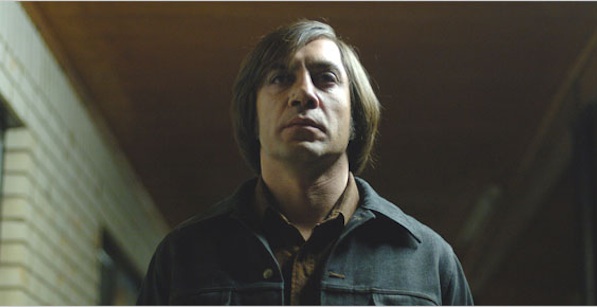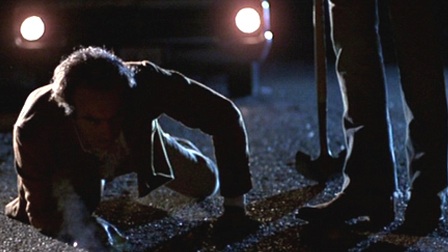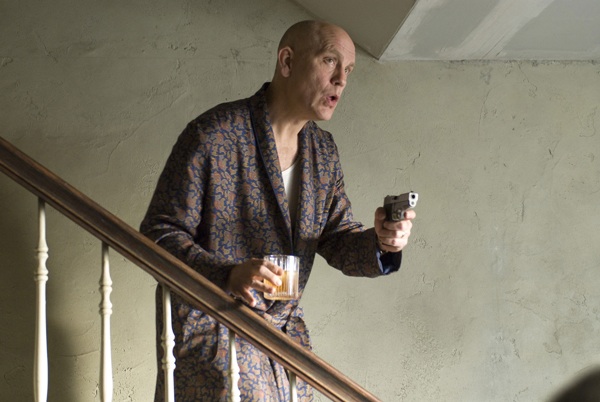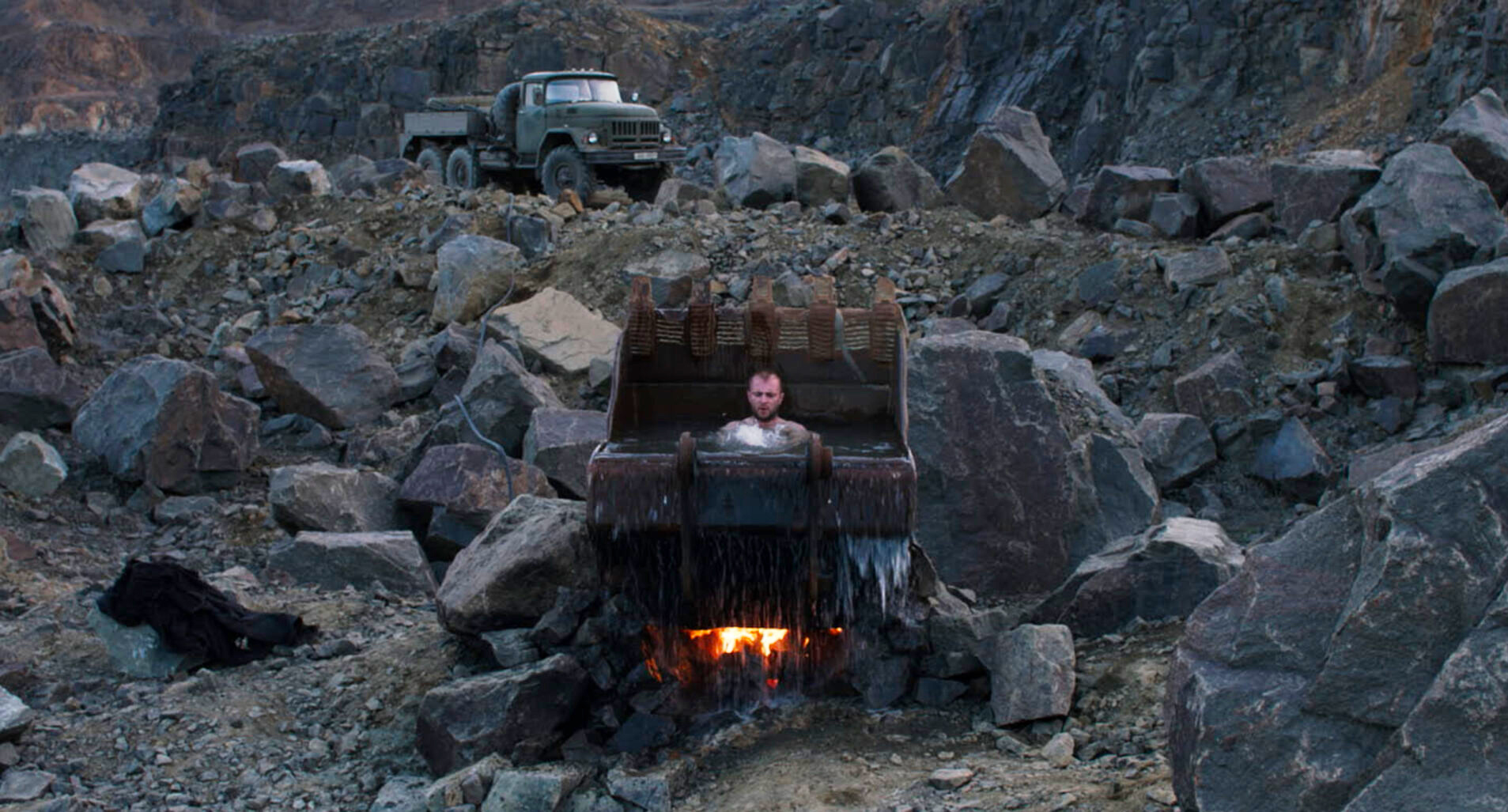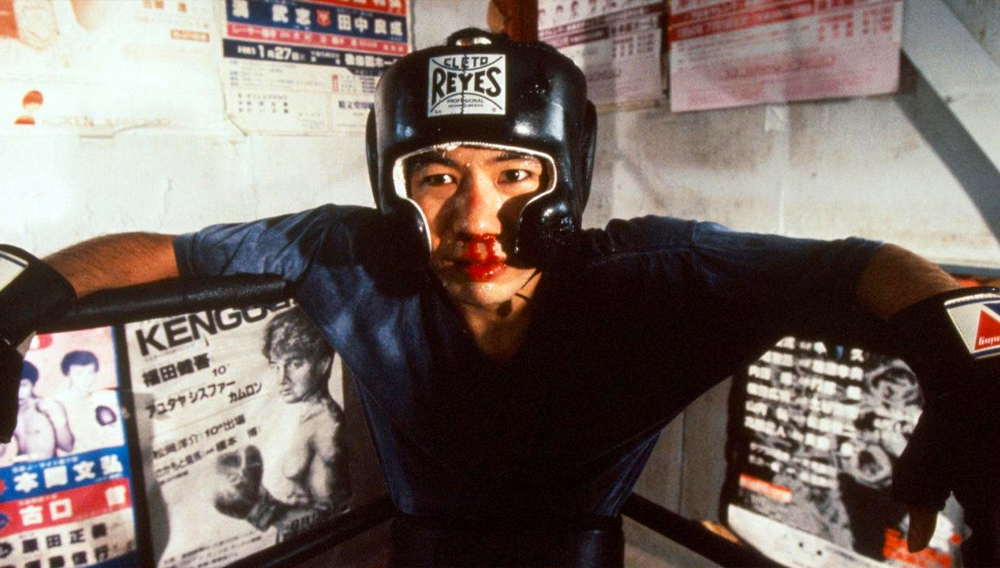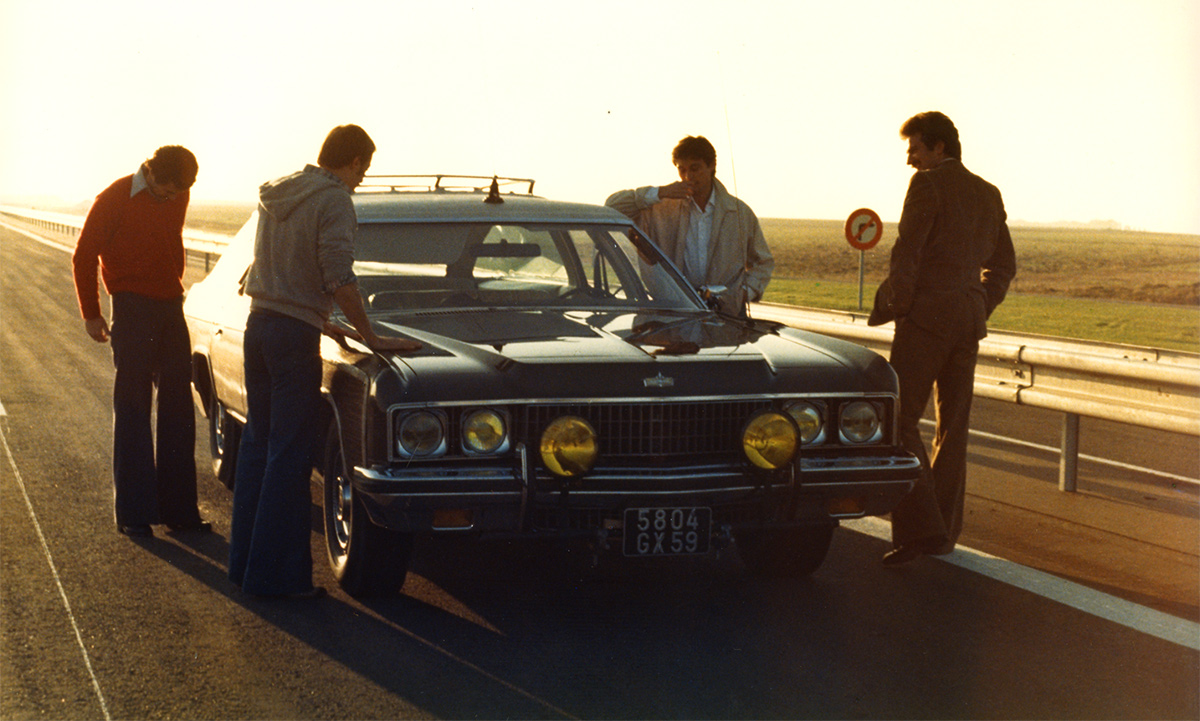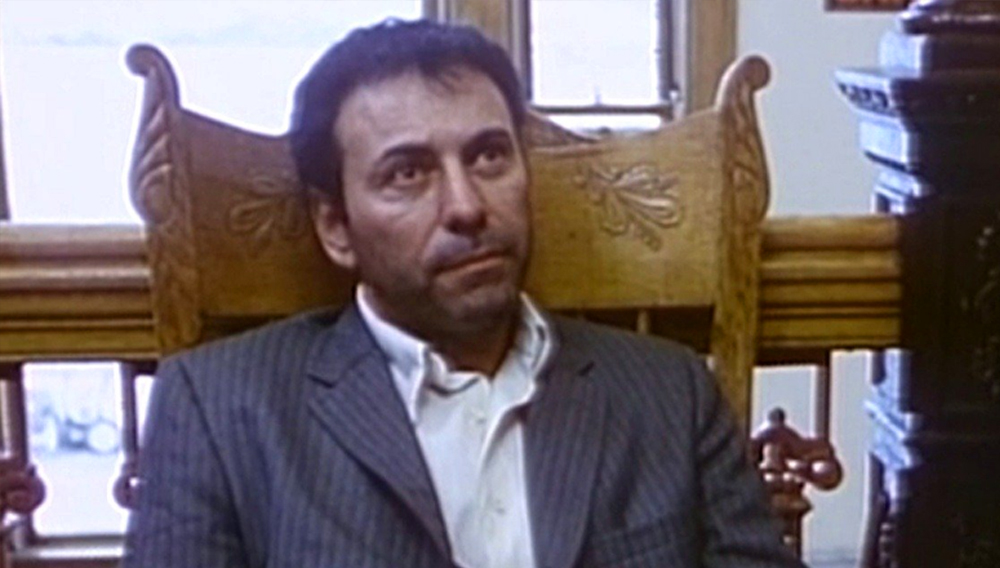It can be said, with confidence to spare, that the title character in Joel and Ethan Coen’s Inside Llewyn Davis doesn’t enjoy a good run of luck. At the opening, Llewyn’s (Oscar Isaac) homeless and thrown out of a safe place where he’s been squatting because he’s potentially gotten the very-taken woman of the house pregnant, a revelation that eventually triggers the [spoiler alert] even more painful discovery that he has a two-year-old son already roaming around somewhere. In a sudden bid for a professional breakthrough, he summons the courage to travel from New York City to Chicago to play his music for a prominent manager only to be brushed off with brutally efficient indifference. But the worst, as they say, is still to come: Llewyn can’t even sell out and join the square working class life he holds in contempt anymore, because his eventual decision to re-join the Merchant Marines is stymied by a variety of sketchy billing regulations. These moments, in particular, will strike an intimate chord with anyone who has ever attempted to pull out of a variety of ever-expanding debts after a long spell of unemployment.
The film is dense with incident, character, irony, subtlety and the circular Sisyphean structure is remarkable, but the running joke, embodied by the runaway cat that serves as a leitmotif, is simple: things never get better. You may find yourself surprised by the film, even if you’re well-accustomed to the Coens’ cracked ironic landscape, because it’s screwing with a narrative template that begs for mercy: the “star is born” film. You keep waiting for Llewyn’s strife to pay off, but we never see his feet obtain metaphorical purchase on the ground below him. He doesn’t even achieve the odd comfort of irretrievably ruining himself, a development that might at least provide closure. The Coens leave Llewyn adrift, blowing around a folk scene that’s about to really announce itself, though, if these few days are an indication, he will be reliably excluded from glory.
Yet the film isn’t a downer; quite the opposite, in fact: Inside Llewyn Davis is actively exhilarating, with that sly shrug of an ending, which is only disguised as a non-ending, arriving as the perfect cherry on top. Beneath the specific milieu of the early 1960s American folk scene, the Coens are acknowledging a broader American privilege that’s always concerned their work, a privilege that’s become particularly pronounced in every film following their re-emergence to artistic prominence with No Country for Old Men in 2007: the right of an American to be a failure.
Let’s expound on that final sentiment by re-indulging some of the great American platitudes: it’s the Land of the Free, the Land of Plenty and the Land of Possibility. Americans, and citizens of many of many other countries, are well-versed in the general principle of the American Dream: that you can be anything you like to be. Let’s table the indisputable proof that those sentiments simply aren’t true, because if we didn’t we’d be here for the length of several books or longer, and stick with just this: Relentlessly telling a populace that it can do whatever it wants (which, just to be sure we’re clear, isn’t true, and it’s a mirage so obvious and transparent it’s even under scrutiny in the best attended film of the year so far, The Hunger Games: Catching Fire) besides offering the populace an, at best, theoretical freedom, also exerts an enormous pressure that’s been consciously, brilliantly achieved. As Americans, we’re groomed to want to be successful and to feel that we’re each special and capable of exacting actions of vast change and import. We’re also groomed to despise ourselves if we fail at an aim that, as a populace, is mathematically impossible. To put it bluntly and very broadly, the game is rigged: We hate ourselves and accrue enormous debt buying things to attempt to assuage that self-hatred. Welcome to Capitalism, baby.
All media contributes to this self-marginalization that’s insidiously passed off as self-empowerment. Because films are supposed to make us “feel good,” and because studios appear to operate under the delusion that only happy endings work most of the time financially, we’re treated to hundreds of movies each year that follow the same tedious self-actualization formula. Self-Actualization is the true American film genre, and so the specifics of the actual genre theoretically at hand often don’t matter or vary that much. If a film is a romance, some hapless schnook, or some babe that no one notices for some reason, discovers their inner resources and rises to the top of their food chain, achieving all their dreams and landing a hot mate in the bargain, with none of the difficulty and resistance of achieving these aims acknowledged. The star is born fantasy, with little variation, follows the same template. (It’s interesting to note that the one genre that resists this platitude most regularly, the horror film, is often stuck in the critical ghetto.) And if we’re seeing a true-life tale, it’s almost always a tale that ends in transcendence, or it will be by the time a studio’s done with it.
The message implicit in this bombardment of “happiness” and “empowerment” is that people who don’t succeed aren’t worth having a film made about them because they aren’t worth knowing, and the Coens have offered a bracing correction to that snobbery. Bob Dylan, who hangs over Inside Llewyn Davis like a specter, gets a new book or film treatment seemingly every three or four days, and while he merits the attention, what about the countless humans who set about achieving the same aim only to find themselves working in grocery stores, or killed on the streets, or raising five kids with a once-beautiful siren, dutifully going to work each morning at the post-office? What about your English teacher, who once sang a surprisingly stirring rendition of “The Times They Are a-Changin’” in the gym? The Coens are waging a quiet artistic war: they’re clearing a swath of the successful person’s narrative woodland and rendering it available for the failures and for the never-quite-weres. The Coens weren’t being catty when they said they don’t do success stories because they’ve already been done, as they recognize the wealth of material available in stories of the ninety-nine percent that aren’t acknowledged by most media to be alive.
Admittedly, that assertion might scan as willfully perverse when applied to the work of a pair of artists known for outlandishly stylized black comedies; and this read doesn’t entirely hold water when applied to all of the Coens’ earliest films, which are meaner, colder productions that can nevertheless be retrospectively understood to pave the way for the current empathetic purity of their last five or six movies. Blood Simple. Raising Arizona. The Hudsucker Proxy. The Big Lebowski. O Brother, Where Art Thou?, The Man Who Wasn’t There, and on and on: All of these films echo George Carlin’s sentiment that “the reason they call it the American Dream, is because you have to be asleep to believe it,” as the heroes of these films are deluded fools and victims, and, just because their avarice and buffoonery have been stylized and heightened, doesn’t mean they’re any less indicative of truth. (Fargo, the duo’s most problematic film as well as the film most indicative of artistic growing pains, often mistakes contempt for outrage, though its finest moments, such as the William H. Macy character’s being finally carted away by the law at the end, exhibit an understanding of working class disappointment that’s unusual for American movies.)
The movie that really paved the way for the kind of empathy, and, yes, tenderness that’s on display in True Grit and, now, Inside Llewyn Davis, which are the Coen Brothers’ two best films, is Burn after Reading, their third best film. In this marvelously cruel movie, which suggests the violent comic thriller W.C. Fields might have made if he lived and worked in the present, the Coens appear to burn through all their outrage. The film is a poetic blood-bath farce in which people kill each other over their desires to get face lifts and to frequent dating sites and to see the kind of flippant romantic comedies that advertise the very blindly consumptive lifestyle that spurs the filmmakers’ wrath. That wrath is still apparent in A Serious Man, a pitch-black parody of religious dogma, but the pain and the torment and the longing that the characters feel is dramatized with a newfound confident straightforwardness.
The Coens of Blood Simple or Raising Arizona might not have dreamed up the scenes in A Serious Man that show a character, played by Richard Kind, trying to corral and master his suffering while camped out on a couch, or that devastatingly precise moment in Inside Llewyn Davis where the hero is camped out in a café, binge drinking coffee while attempting to squeeze the snowy ice water out of his damn threadbare socks. People who complain that these scenes are just part of the Coens’ presiding, endless, merciless joke are failing to acknowledge the complexity of what’s happening in these films. Just because the directors rib their characters doesn’t mean they don’t feel for them, and the (only partial) playfulness is actually the ultimate sign of the Coens’ respect: They refuse to turn their bumbling everymen into martyrs, refuse to cheapen or soften their hardship with pity. When someone confesses their troubles to a friend, even a good friend, they risk setting themselves up for a great variety of clichéd cheering up. But one gets the impression that the Coens might greet your tale of woe with: “That’s that.” Joel and Ethan Coen understand that sometimes the downtrodden wants to hear something like that—an understanding that they’re suffering might not be a failing, but an evidence of being human.


